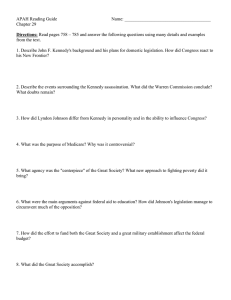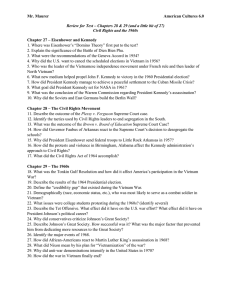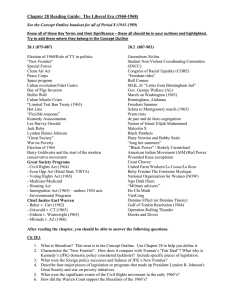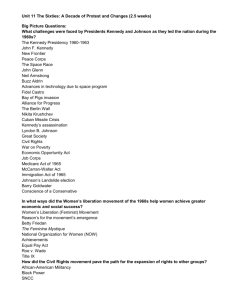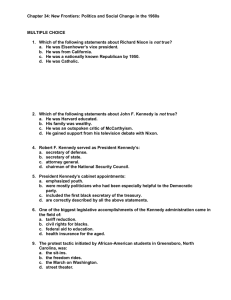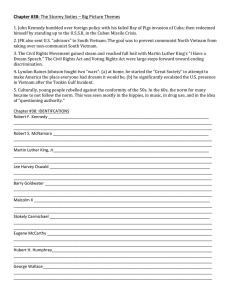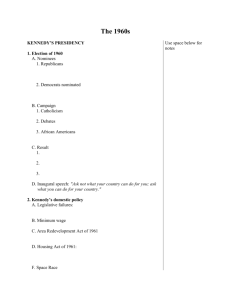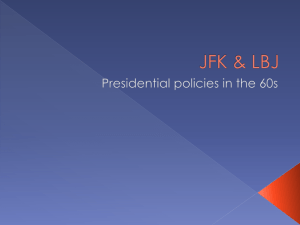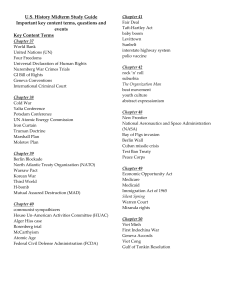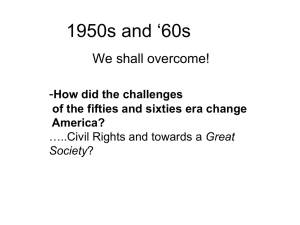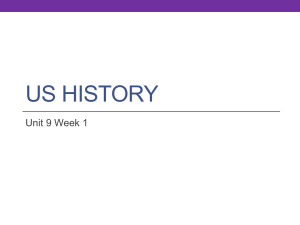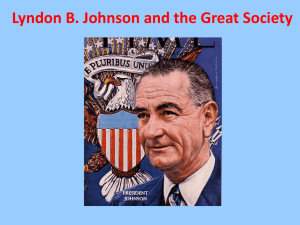Chapter 39 (The Stormy Sixties) Big Picture Questions: 1. Describe
advertisement
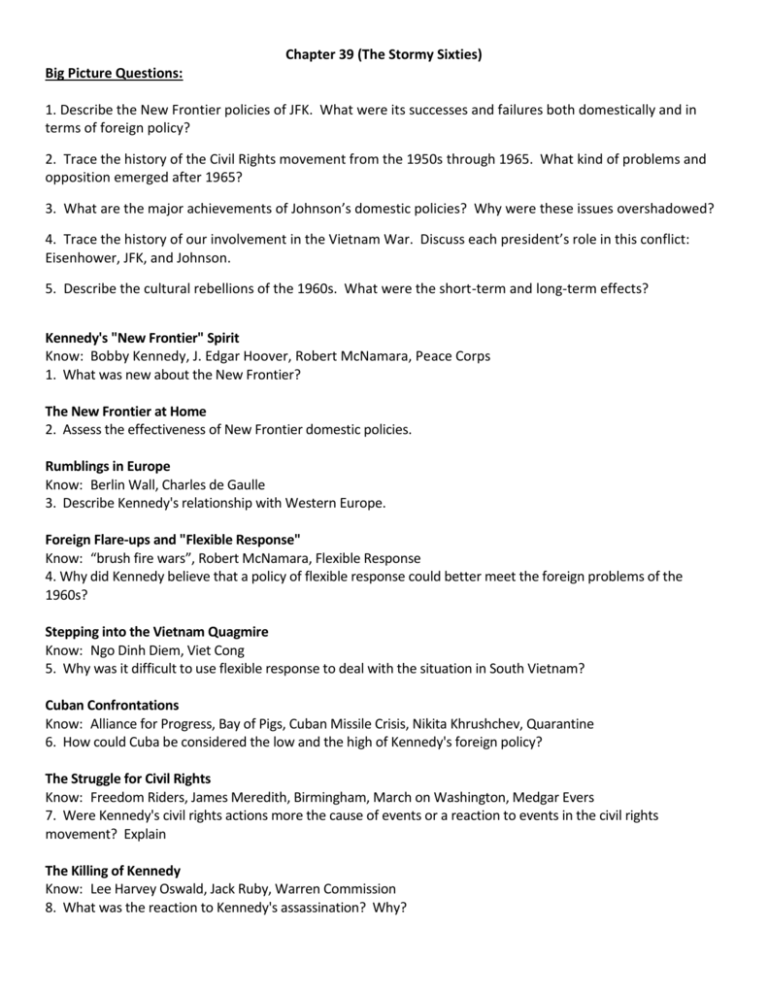
Chapter 39 (The Stormy Sixties) Big Picture Questions: 1. Describe the New Frontier policies of JFK. What were its successes and failures both domestically and in terms of foreign policy? 2. Trace the history of the Civil Rights movement from the 1950s through 1965. What kind of problems and opposition emerged after 1965? 3. What are the major achievements of Johnson’s domestic policies? Why were these issues overshadowed? 4. Trace the history of our involvement in the Vietnam War. Discuss each president’s role in this conflict: Eisenhower, JFK, and Johnson. 5. Describe the cultural rebellions of the 1960s. What were the short-term and long-term effects? Kennedy's "New Frontier" Spirit Know: Bobby Kennedy, J. Edgar Hoover, Robert McNamara, Peace Corps 1. What was new about the New Frontier? The New Frontier at Home 2. Assess the effectiveness of New Frontier domestic policies. Rumblings in Europe Know: Berlin Wall, Charles de Gaulle 3. Describe Kennedy's relationship with Western Europe. Foreign Flare-ups and "Flexible Response" Know: “brush fire wars”, Robert McNamara, Flexible Response 4. Why did Kennedy believe that a policy of flexible response could better meet the foreign problems of the 1960s? Stepping into the Vietnam Quagmire Know: Ngo Dinh Diem, Viet Cong 5. Why was it difficult to use flexible response to deal with the situation in South Vietnam? Cuban Confrontations Know: Alliance for Progress, Bay of Pigs, Cuban Missile Crisis, Nikita Khrushchev, Quarantine 6. How could Cuba be considered the low and the high of Kennedy's foreign policy? The Struggle for Civil Rights Know: Freedom Riders, James Meredith, Birmingham, March on Washington, Medgar Evers 7. Were Kennedy's civil rights actions more the cause of events or a reaction to events in the civil rights movement? Explain The Killing of Kennedy Know: Lee Harvey Oswald, Jack Ruby, Warren Commission 8. What was the reaction to Kennedy's assassination? Why? The LBJ Brand on the Presidency Know: The Johnson Treatment, Civil Rights Act of 1964, Affirmative Action, War on Poverty, Great Society, The Other America 9. Did Johnson provide good leadership to the country in his first term? Explain. Johnson Battles Goldwater in 1964 Know: Barry Goldwater, Gulf of Tonkin Resolution 10. Your book says that the 1964 election was a contest between distinctly different political philosophies. Explain this idea. The Great Society Congress Know: Medicare, Medicaid, Entitlements, Immigration and Nationality Act, Head Start 11. In what ways could it be said that 1964-68 marked some of the most liberal years for government in American history? Battling for Black Rights Know: Voting Rights Act of 1965, the 24th Amendment, Freedom Summer, Selma 12. What forward steps toward voting for African-Americans were made in the mid-1960s? Black Power Know: Watts riots, Malcolm X, Black Panthers, Stokely Carmichael 13. Why did African-Americans turn from non-violence in the late 1960s? Combating Communism in Two Hemispheres Know: Operation Rolling Thunder, Guerrilla Warfare 14. Why did President Johnson increase America's military presence in Vietnam? Vietnam Vexations Know: Six-Day War, Teach-ins, Credibility Gap 15. Describe the negative consequences of the Vietnam War. Vietnam Topples Johnson Know: Tet Offensive, Eugene McCarthy 16. Why did President Johnson decide not to run for re-election in 1968? The Presidential Sweepstakes of 1968 & Victory for Nixon Know: Hubert Humphrey, Robert Kennedy, George Wallace 17. Why was the 1968 presidential election an interesting one? The Obituary of Lyndon Johnson 18. It could be said that few presidents were as great a success or as great a failure as Lyndon Johnson. Assess the validity of this statement. The Cultural Upheaval of the 1960s Know: Berkeley, Sexual Revolution, Stonewall Riots, Students for a Democratic Society (SDS) 19. Why did a 1960s counterculture develop and how was it expressed?
